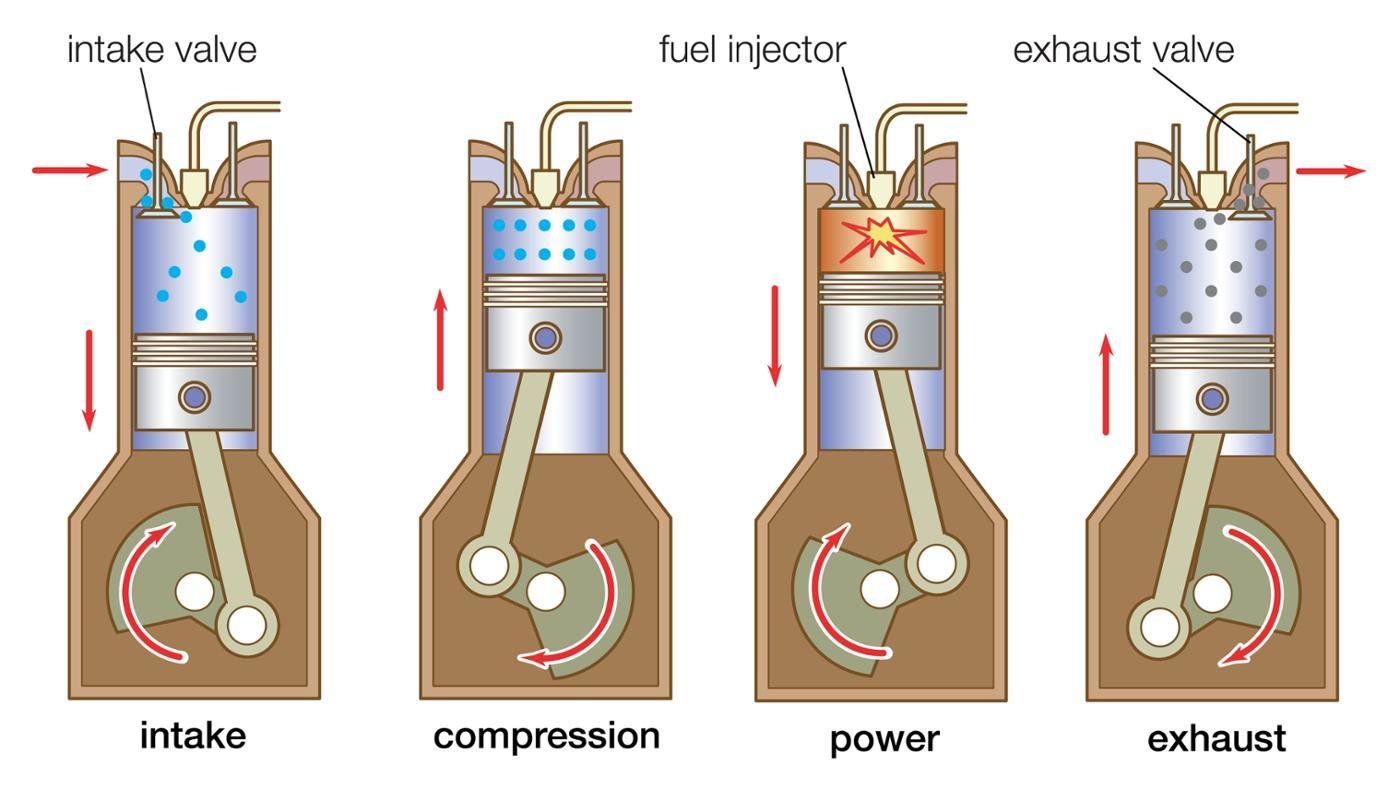Consumer Evaluations: Why Engines For Africa Stands Out
Consumer Evaluations: Why Engines For Africa Stands Out
Blog Article
A Total Overview to Selecting the Right Engine for Your Job
Picking the proper engine for your task is a critical choice that can considerably impact its general success. Each of these components plays an essential function in ensuring that your chosen engine not only fulfills prompt goals however likewise lines up with long-term ambitions.
Specify Your Task Needs
Defining your job needs is an essential step in selecting the ideal engine for successful execution. An extensive understanding of your project's goals will lead you in identifying the abilities and attributes required from an engine. Begin by laying out the range of your job, consisting of the preferred capability, target audience, and the certain results you intend to attain.
Next, take into consideration the technical requirements that straighten with your task objectives. This includes assessing the compatibility of the engine with existing systems, along with the programs languages and frameworks that will certainly be used. Additionally, evaluate the level of scalability required to suit future growth or changes in demand.
Spending plan constraints also play a vital role in specifying your job needs. Develop a clear monetary framework to assist your decision-making process, guaranteeing that the engine selected fits within your budget plan while supplying the necessary functionality.
Evaluate Performance Requirements

Engines that sustain straight scaling are often more effective for larger applications. Furthermore, examine the engine's efficiency under different problems, such as peak use scenarios, to ensure it fulfills your dependability requirements.
Think About Simplicity of Use
While technological requirements are important, the simplicity of usage of an engine can substantially impact the growth procedure and general project success. An intuitive user interface, clear documentation, and streamlined operations can substantially reduce the understanding curve for programmers, allowing them to concentrate on imagination and problem-solving as opposed to coming to grips with complicated tools.
When assessing an engine's ease of usage, think about the onboarding experience. A well-structured intro, complete with tutorials and sample jobs, can help with a smoother change for new customers. Additionally, the clearness and comprehensiveness of the engine's paperwork play an important role; comprehensive overviews and API references can equip designers to fix and implement functions efficiently.
An additional element to think about is the engine's personalization abilities. An engine that enables easy modifications can be More Help extra user-friendly, as programmers can customize it to fit their certain requirements without comprehensive headache. Assess the workflow assimilation with platforms and tools you already use. A cohesive community can improve efficiency and reduce rubbing during the development process. Eventually, choosing an engine that focuses on convenience of use can cause a more delightful and productive advancement experience.
Assess Area and Assistance
The stamina of an engine's community and assistance network can greatly affect a programmer's experience and success. A vibrant area commonly suggests a wealth of shared knowledge, sources, and troubleshooting aid that can improve your task's development procedure. When assessing an engine, think about the size and activity level of its area. Larger communities usually provide more online forums, tutorials, and third-party plugins, allowing designers to find solutions much more effectively.
Furthermore, assess the availability of main assistance networks. Trusted documentation, receptive consumer support, and normal updates are crucial for attending to technical problems and keeping your job on track. Engines For Africa. Energetic neighborhoods this page likewise cultivate Our site collaboration, supplying chances for networking and responses, which can be vital, particularly for independent programmers or little teams
In addition, investigate the visibility of community-run events, such as hackathons or meetups. These celebrations can improve your understanding of the engine while linking you with potential collaborators and seasoned users. In summary, a durable area and support group not just improve growth yet likewise create an atmosphere favorable to discovering and technology, inevitably enhancing the probability of your task's success.
Contrast Cost and Licensing Alternatives
Budget plan factors to consider play an important function in selecting the appropriate engine for your job, as the cost and licensing alternatives can considerably influence both short-term costs and long-lasting stability. Engines For Africa. Different engines use varying rates structures, which can consist of one-time acquisition charges, registration designs, or revenue-sharing arrangements based upon your project's incomes

Certifying options also vary considerably. Some engines are open-source, using adaptability and community-driven support, while others might call for exclusive licenses that restrict usage and circulation. Comprehending the ramifications of each licensing model is vital, as it impacts possession legal rights, future scalability, and prospective lawful commitments.
Final Thought
In conclusion, selecting the suitable engine for a project necessitates a comprehensive assessment of defined task requirements, performance needs, convenience of usage, area assistance, and cost factors to consider. By systematically resolving these vital aspects, decision-makers can make sure placement with both future and existing job needs. A well-informed option ultimately boosts the probability of task success, allowing efficient resource appropriation and making the most of prospective results within the specified monetary restrictions.
Choosing the proper engine for your job is an essential choice that can dramatically influence its overall success.Defining your task needs is an essential action in picking the ideal engine for effective application. A comprehensive understanding of your project's purposes will lead you in identifying the functions and capabilities called for from an engine.As soon as you have a clear understanding of your project requires, the next action is to examine the performance needs of the engine.In verdict, selecting the suitable engine for a project requires a complete examination of defined task demands, efficiency needs, ease of use, community support, and cost considerations.
Report this page